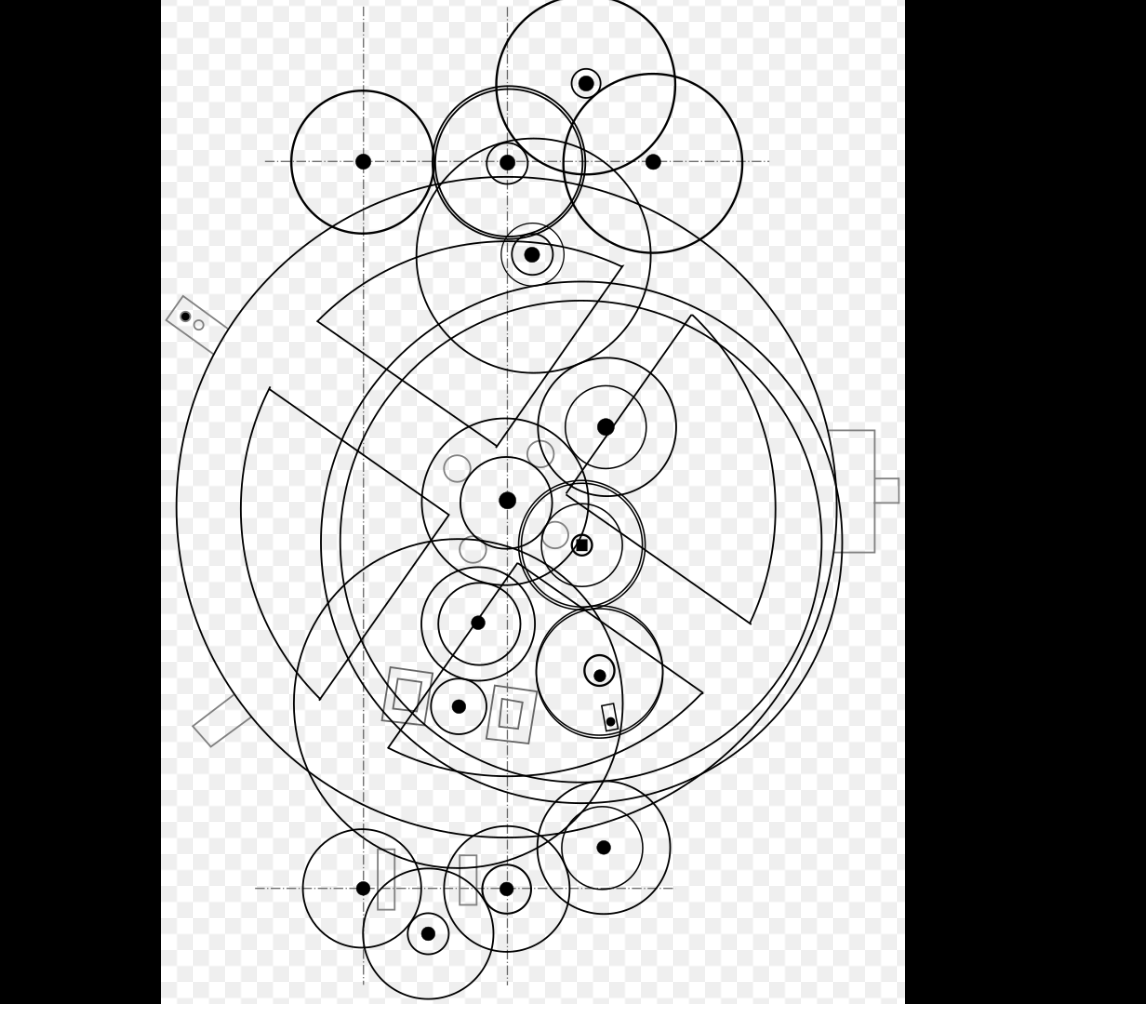1241: 1/2: #ClassicScience: Time Machine, First Century BCE. Alexander Jones @NYU.

Photo: Schematic of the artefact's known mechanism Antikythera mechanism (https://en.wikipedia.org/wiki/en:Antikythera_mechanism) fragment (fragment A). The mechanism consists of a complex system of 30 wheels and plates with inscriptions relating to signs of the zodiac, months, eclipses and pan-Hellenic games. The study of the fragments suggests that this was a kind of astrolabe The ancient Greeks created the world’s first computer, the Antikythera Mechanism, a mechanical device that they used to predict astronomical events and mark the passage of time. The device was pulled from the Antikythera shipwreck in 1901. While scientists have been studying the mechanism for over 100 years, modern technology has finally allowed them to learn much more about this amazing artifact. http://JohnBatchelorShow.com/contact http://JohnBatchelorShow.com/schedules Parler & Twitter: @BatchelorShow 1/2: #ClassicScience: Time Machine, First Century BCE. Alexander Jones @NYU. http://www.cbc.ca/news/technology/antikythera-mechanism-1.3628648 “…After more than a decade's efforts using cutting-edge scanning equipment, an international team of scientists has now read about 3,500 characters of explanatory text — a quarter of the original — in the innards of the 2,100-year-old remains. They say it was a kind of philosopher's guide to the galaxy, and perhaps the world's oldest mechanical computer. "Now we have texts that you can actually read as ancient Greek, what we had before was like something on the radio with a lot of static," said team member Alexander Jones, a professor of the history of ancient science at New York University. "It's a lot of detail for us because it comes from a period from which we know very little about Greek astronomy and essentially nothing about the technology, except what we gather from here," he said. "So these very small texts are a very big thing for us."